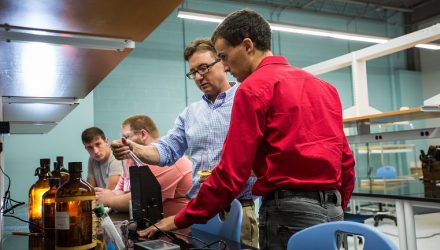
Engaging Beyond Learning Styles
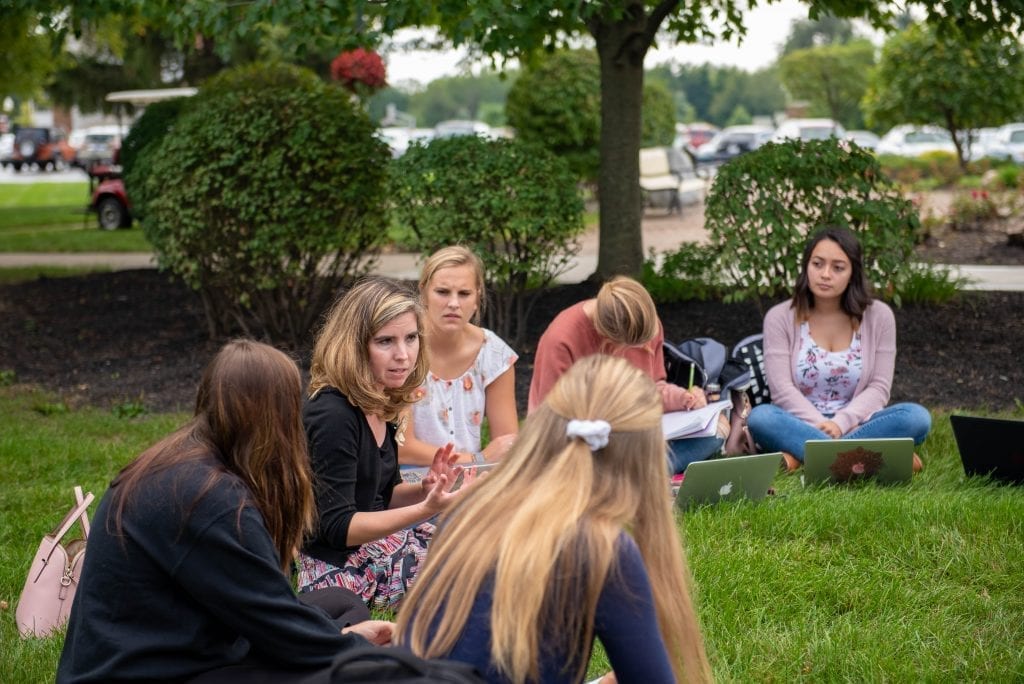
If you had a choice between learning in a sterile environment and one that is engaging, your answer is predictable. Why would a person choose to be bored? Even fewer would choose to pay money for something that does not engage our minds.
But how can any school expect to disseminate information in a fashion that reaches every type of learner? Is it possible to teach in a manner that is both engaging and informative?
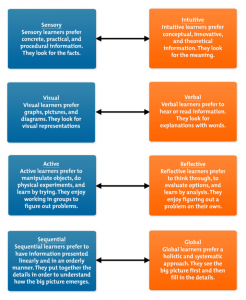
VARK Learning Styles
Google ‘learning styles’ and the first page will be teeming with VARK results. VARK is a model that breaks down the different styles by which students learn.1 Visual learners prefer images, maps, and graphs. Auditory learners are best trained through group discussions and listening to lectures. The third category, Reading and Writing, is closely related to Visual learning. Where visual learners prefer pictures, Readers prefer words. These are your bookworms and note-takers. The last learning style in this model is Kinesthetic. These are your hands-on learners. They want to touch things in order to manipulate the object being studied.
There is research that contradicts these well-known learning models. It states that different approaches to learning should be based on the content being learned, not the learners themselves.2 A music class is best taught when people practice singing or playing an instrument. To learn English, there better be opportunities to read and write. A math class requires assigning 100 problems for homework every single night. Ok, we made that last one up, but you get the idea.3
We have all agreed that learning is beneficial. It makes sense that we choose a learning environment that is captivating, energizing, and relatable. This should be the foundation for all classroom teaching everywhere.
But what if we told you that a learning experience exists that offers so much more? No longer satisfied with a simple relaying of information from professor to student because we believe in the ability to offer more. We trust in the truth of scripture. We know showing the connection between our faith and the world we live in is important. So we look for learning experiences outside of the four walls of the traditional classroom. We know people learn better together, so every step of the learning process takes place in a group.
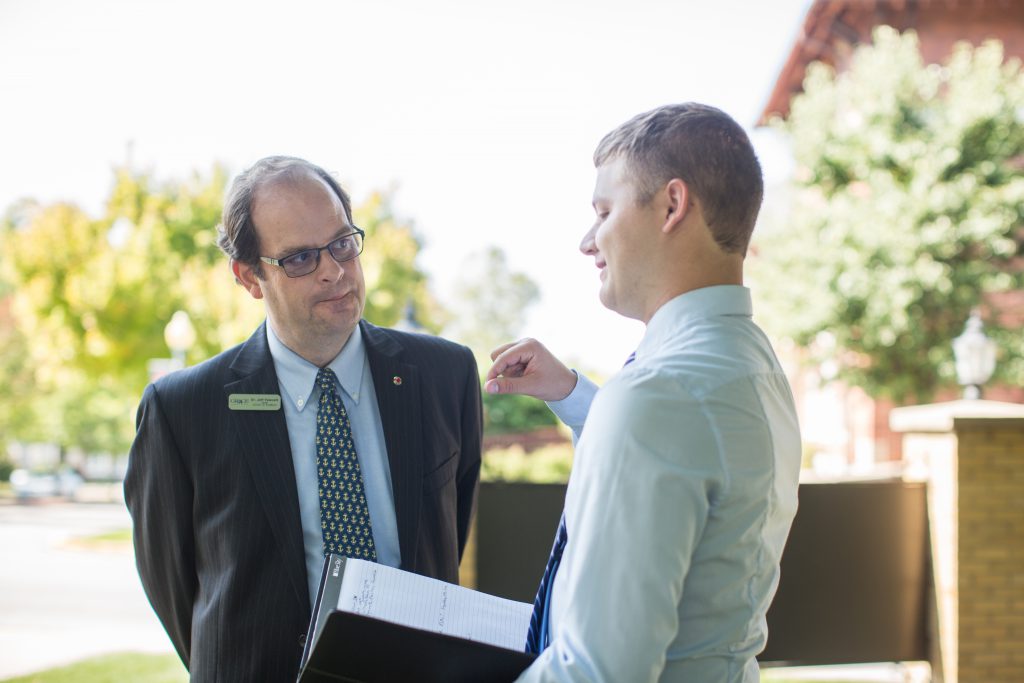
Not All Learning Happens in a Classroom
The big world to which you are entering is not contained in a classroom setting. This is why many professors offer lunch options. They can be found in campus dining, engaging with their students outside of the classroom.
The old adage is true. People don’t care how much you know until they know how much you care. Grace professors understand that caring is most often communicated in that which isn’t expected. Opening their homes to host a movie discussion in a relaxed setting. Office hours that happen outside on a beautiful day. Stopping to pray for a need outside the context of the class subject.
To teach business principles in an interactive way, professors have brought several copies of the board game Monopoly. No information was found about whether the Star Wars or Pokémon editions were used. But we trust learning was fun on that day.
Don’t Fear Group Projects
It doesn’t always sound fun. It may elicit groans from those who have been down the group project road before. Yet many professors ensure that group learning is a fixture of their process. And why not? The benefits of group learning are well researched.
Certain professors promote discussion by structuring the classroom into a circle. Instead of one person speaking and everyone else listening, learning is enhanced when everyone shares. The simple act of interacting with one another exponentially improves the learning experience.
Other professors are known to have semester-long group projects. One, in particular, doesn’t allow for switching groups once the project has begun. And why? Because it teaches us how to work with all types of people, something we all have to do in our careers. Rather than something to be feared, working alongside others is an experience to be embraced.
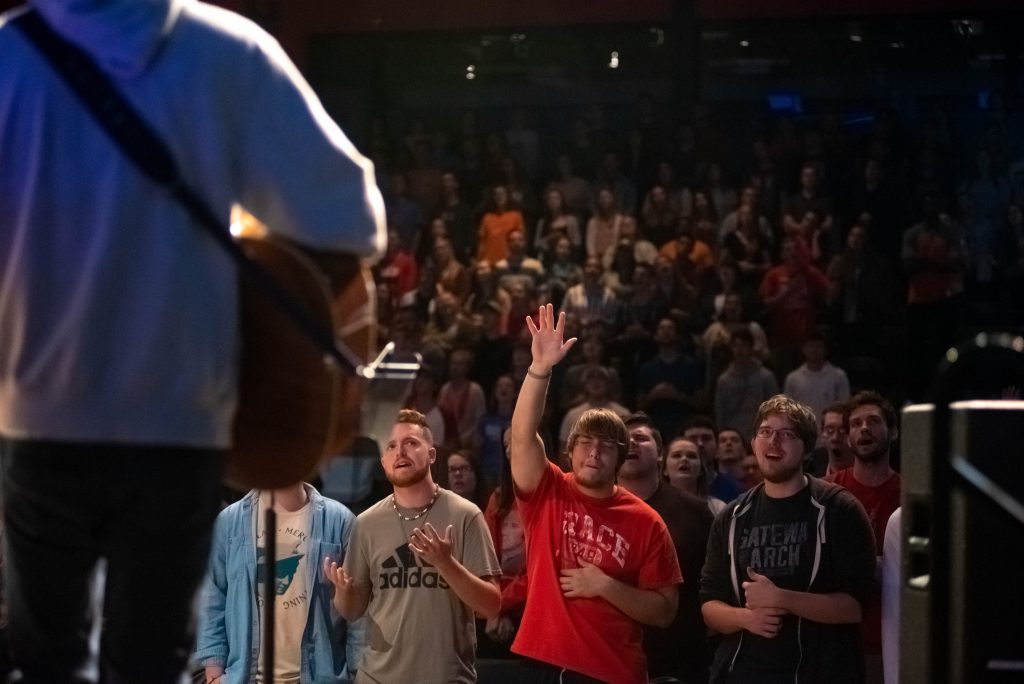
Connecting Faith to Reality
As Christians, we understand the dual citizenship we hold. We believe that our careers also hold a dual purpose. There is a job to be done, yes. But there is also the God to be glorified. Since the Bible is living and active, it directs everything we do. No matter what field we study, we look to glorify God, honor His creation, and look for the truth He has already revealed.
Classes begin in prayer because we acknowledge our need for God. Discussions engage topics like integrity and honesty. Principles are examined. If higher education purports to train a person for their selected field, then a Christian higher education is about how we can excel in our fields in a manner that brings honor to God.
Grace College is distinctive because the students we seek are distinctive. The learning process may look familiar, but the practical deviations are on purpose. Grace College fills itself with experienced professors who know how to teach their subject matter in ways that are engaging. Time spent here will leave you ready to be productive and able to perform in your chosen field of expertise.
The Grace student is unique. So our teaching methods match. If you would like to see what a Grace education can offer you, click below to learn more.
1 Retrieved from https://teach.com/what/teachers-know/learning-styles/
2 Chick, Nancy. Learning Styles. Retrieved from https://cft.vanderbilt.edu/guides-sub-pages/learning-styles-preferences/
3 Can somebody please inform math teachers?
Previous Post

